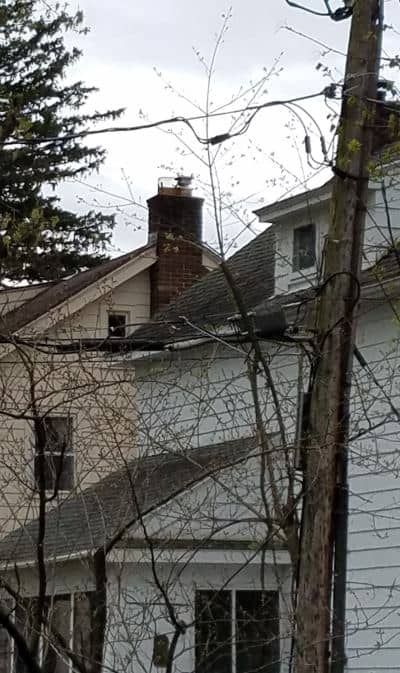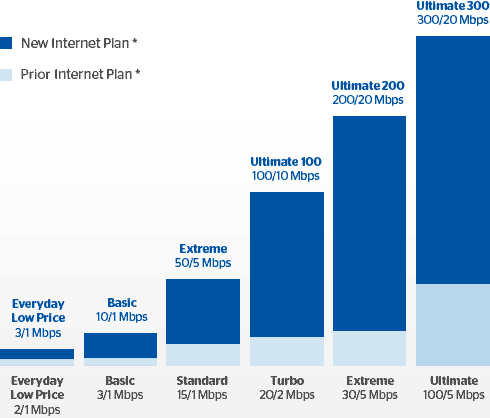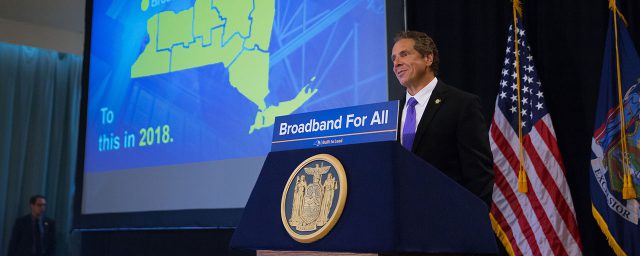
A utility pole with Charter Communications wiring in upstate New York.
Charter Communications has been caught counting upstate New York homes and businesses as newly served when, in fact, many have had cable service for years.
New York’s largest cable operator is once again under fire over questions about whether it is misled state officials in its claims to be expanding rural broadband service to 145,000 unserved homes and businesses. In many instances, New York regulators found evidence the company was counting residents as “newly passed” by Spectrum cable lines when regulator on-site audits found those customers were already served by Spectrum or another broadband provider.
The Buffalo News reports staff members of the New York Public Service Commission visited multiple properties and took photos and notes finding simple overhead cable replacements or non-existent addresses were counted by Charter as new expansion areas to be counted towards its agreement to expand rural broadband in return for approval of its 2016 acquisition of Time Warner Cable.
The PSC has already repeatedly admonished Charter Communications for failing to keep to its broadband expansion agreements. The regulator has also warned the company faced at least $1 million in fines and franchise revocation proceedings in parts of New York City for allegedly miscounting 12,467 addresses in dense urban areas of New York City that either already had access to Spectrum cable service or should have under New York City’s franchise agreement.
Based on the latest list of invalid addresses rejected by the PSC, thousands are located in rural upstate New York. Charter is the biggest cable operator in every part of New York State except Long Island, and a few New York City boroughs where Altice’s Cablevision is the dominant provider. Some parts of rural New York are served by independent cable operators or co-ops, and 1,726 addresses Charter listed as “newly passed” were declared invalid after the PSC discovered they were already served by Charter/Spectrum or another provider. The agreement required Charter not to count areas where New York State paid taxpayer dollars to subsidize rural broadband expansion from other providers like telephone companies.
If Charter is unable to provide evidence refuting the PSC’s findings by May 9, 2018, the PSC will fine Charter $1 million. The company was required to maintain a $12 million line of credit after its earlier lapses that can be drawn upon by New York State to efficiently collect fines and penalties.
Stop the Cap! filed a recommendation with the PSC in April that it impose new sanctions against Charter if it is once again found deficient in meeting its commitments. Specifically, the group recommended the PSC impose a requirement that Charter further expand its network to reach as many New York homes and businesses reasonably within reach that have recently been assigned to receive satellite internet access. More than 70,000 rural New Yorkers were disappointed to learn they would not receive promised broadband service from a wired broadband provider because no companies bid to serve these potential customers.
“Compelling Charter to broaden its reach by as few as three miles beyond where it stands today could bring a number of upstate New York residents their only practical chance of getting true broadband service,” said Phillip Dampier, Stop the Cap!’s founder and president. “Fines punish bad behavior but don’t bring anyone broadband service. We’d prefer they be required to spend that money and more on helping erase New York’s urban-rural digital divide once and for all. Satellite internet is an unacceptable solution for all but a small number of these broadband-stranded New Yorkers.”

Cuomo
New York Governor Andrew Cuomo chimed in on Wednesday through his press secretary, criticizing Charter’s alleged bad behavior.
“The State approved Spectrum’s acquisition and its ability to operate in New York based on the fulfillment of certain obligations, including providing broadband access to underserved parts of the state and preserving a qualified workforce,” said Dani Lever, press secretary to Gov. Andrew M. Cuomo. “The governor believes it is essential that corporations doing business with the state uphold their commitments, and we will not tolerate abusive corporate practices or a failure to deliver service to the people. Large and powerful companies will be held to the same standard as all other businesses in New York. The Spectrum franchise is not a matter of right, but is a license with legal obligations and if those are not fulfilled, that license should be revoked.”
In response, Charter strongly denies the allegations and claims it not only isn’t guilty of overcounting new rural passings, it is actually delivering rural broadband expansion ahead of schedule.
“Charter is bringing more broadband to more people across New York state,” the company said in a statement. “We exceeded our last build-out commitment by thousands of homes and businesses. We’ve also raised our speeds to deliver faster broadband statewide. We are in full compliance with our merger order and the New York City franchise.”
The original 2016 merger approval agreement called on Charter to expand its Spectrum cable service (formerly known as Time Warner Cable) to an additional 145,000 New York locations over four years. Charter’s standing with the PSC was quickly called into question when the company broke its commitment to reach the first 36,250 properties no later than May, 2017.
 “It should have been clear to Charter its buildout schedule and commitment was in serious trouble by Thanksgiving of 2016 — just months after completing its $56 billion buyout of Time Warner Cable, when it reported it had achieved only 7,265 new service passings so far,” said Dampier. “By the deadline, Charter only managed to reach 15,164 newly served properties, less than half what it promised. Now the company claims it is overachieving its commitments, but is it fudging the numbers?”
“It should have been clear to Charter its buildout schedule and commitment was in serious trouble by Thanksgiving of 2016 — just months after completing its $56 billion buyout of Time Warner Cable, when it reported it had achieved only 7,265 new service passings so far,” said Dampier. “By the deadline, Charter only managed to reach 15,164 newly served properties, less than half what it promised. Now the company claims it is overachieving its commitments, but is it fudging the numbers?”
John Rhodes, chairman of the PSC, seems to think so.
When the department’s staff went out on road trips to audit some of Charter’s claimed “new passings,” it discovered troubling evidence that “many of these claimed newly completed passings actually consisted of cable and equipment upgrades to existing cable plant. In other words, Charter replaced older cabling and equipment on a pole with newer cabling and equipment, but the location had already been passed by the cable network, oftentimes having been originally passed with cable [service] for years,” according to Rhodes.
The PSC did not surprise Charter with the results of its audits at the last minute either. New York’s PSC notified it had started actively auditing Charter’s claimed passings as early as January, 2017. Each month, staff members sent the results of those audits to Charter, showing exactly what properties appeared not to be in compliance with the approval agreement.

Rhodes
The audit was comprehensive, according to Rhodes:
DPS Staff’s audit process involved field inspections of targeted address locations identified by Charter as completed. Department Staff used GPS and other mapping tools to identify addresses, cross roads, and landmarks in the periphery of the target inspection addresses. When an address was positively identified, DPS Staff made observations at the claimed completed location to determine if cable network (either aerial or underground) was present, and if so, was the cable newer or older vintage, and whether or not cable was already present and passing the location prior to January 2016. Amongst other things, Field Inspectors made visual observations of cabling, electronics, power supplies, connectors, cable shrink tubing and related attachments for overall condition, including signs of wear, corrosion, and discoloration that would associate weathering and age of the outside plant facilities. Department Staff also looked for noticeable recent additions of cable tags, subscriber drops, as well as the attachment conditions of other pole attachers to help determine if there had been any recent physical moves or changes to the facilities. Further, DPS Staff made visual observations of the foliage and vegetation in the periphery of the communications space, looking for signs of recent trimming or other activity that might indicate outside plant work activity.
The final straw may have been Charter’s December, 2017 buildout list, which included 42,889 claimed new passings. PSC staffers audited 6,389 addresses in upstate New York, revealing disturbingly low verified compliance with the expansion agreement. Of those upstate addresses, Rhodes’ report claims 465 audits were unverifiable or undetermined, 1,726 were recommended for disqualification because there was pre-existing cable service at those locations, and another 1,597 addresses were apparently duplicates from previous quarterly Charter buildout lists the company may have attempted to count twice.
Charter’s most recent settlement agreement set a schedule for rural broadband expansion, with deadlines, benchmarks, and substantial fines for missing either:
- 36,771 properties by Dec. 16, 2017;
- 58,417 by May 18, 2018;
- 80,063 by Dec. 16, 2018;
- 101,708 by May 18, 2019;
- 123,354 by Nov. 16, 2019;
- 145,000 by May 18, 2020.
 Charter Communications is not obligated to upgrade New York internet customers to a minimum internet speed of 300 Mbps, according to a letter of clarification directed to Stop the Cap! and received today from the New York State Department of Public Service.
Charter Communications is not obligated to upgrade New York internet customers to a minimum internet speed of 300 Mbps, according to a letter of clarification directed to Stop the Cap! and received today from the New York State Department of Public Service.



 Subscribe
Subscribe The New York Public Service Commission on Thursday approved its final settlement proposal with Charter Communications in a 3-1 vote, allowing Spectrum to continue as the dominant cable operator in New York State.
The New York Public Service Commission on Thursday approved its final settlement proposal with Charter Communications in a 3-1 vote, allowing Spectrum to continue as the dominant cable operator in New York State. In Rochester, Stop the Cap! was disappointed to learn the PSC had rejected recommendations on improving the settlement.
In Rochester, Stop the Cap! was disappointed to learn the PSC had rejected recommendations on improving the settlement.





 “It should have been clear to Charter its buildout schedule and commitment was in serious trouble by Thanksgiving of 2016 — just months after completing its $56 billion buyout of Time Warner Cable, when it reported it had achieved only 7,265 new service passings so far,” said Dampier. “By the deadline, Charter only managed to reach 15,164 newly served properties, less than half what it promised. Now the company claims it is overachieving its commitments, but is it fudging the numbers?”
“It should have been clear to Charter its buildout schedule and commitment was in serious trouble by Thanksgiving of 2016 — just months after completing its $56 billion buyout of Time Warner Cable, when it reported it had achieved only 7,265 new service passings so far,” said Dampier. “By the deadline, Charter only managed to reach 15,164 newly served properties, less than half what it promised. Now the company claims it is overachieving its commitments, but is it fudging the numbers?”
